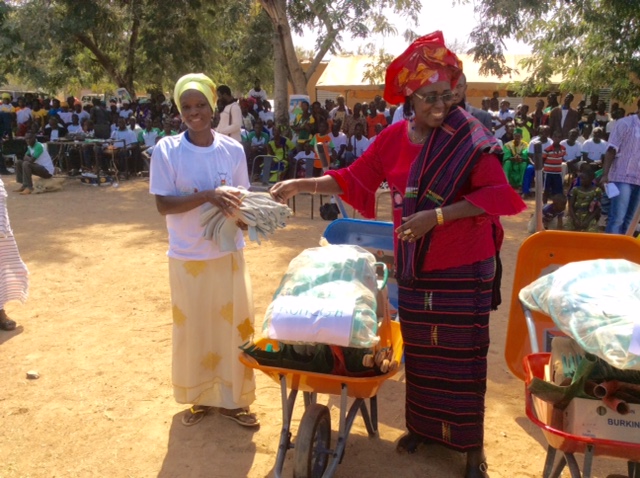World Toilet Day in Burkina Faso: access to toilets is everyone's responsibility reminds the Minister for Water and Sanitation
Published on: 21/11/2016

Having successfully participated in the Government's pilot "Ending Open Air Defecation" project, the village of Koalga in the Province of Sissili hosted an event to commemorate World Toilet Day this 19 November 2016.
In his speech, the Minister for Water and Sanitation, Ambroise Niouga Ouedraogo reminded his audience that more than two-thirds of the Burkinabe population still lacks access to an adequate latrine or uses the bush as their toilet. According to Anne Vincent, the local representative of UNICEF who participated in the event, the lack of sanitation is "not really just a poverty issue". She clarified; "in Burkina, 14 million of the almost 20 million inhabitants have a mobile phone. That figure shows that the low rate of access to sanitation is not due to a lack of money." Due to the mitigated results of past actions, it is time, according to the Minister, to "let the people take the lead in all community development actions". Hence the theme for the day of "Universal access to sustainable sanitation services: community commitment's the key"
"Once on board, the rest is up to you!"
To convince his compatriots of the need to dig their own latrines, the Minister was more than convincing. "In our communities, and don't you worry; I am also from a small village, we dig wells. A well can be 25 metres deep. We dig them ourselves. A latrine is only 2 metres deep at the most." The Minister was frank with the people of Koalga and those who had come from the surrounding area to commemorate World Toilet Day. For those who may be waiting for help or support from a battery of partners before getting down to it, the Minister for Water and Sanitation could not have been clearer: "you may get some support from the partners, but they won't do it all for you forever. Once on board, the rest is up to you."
For the country director of IRC Burkina, Juste Hermann Nansi, "if you analyse the shortcomings of current approaches, you can see that household sanitation in Burkina Faso needs a four-dimensional response: (i) self-determination at individual and community level, (ii) family solidarity from outside, (iii) the development of a dynamic local market for sanitation goods and services and (iv) institutional regulation at district level."
Watch this space for more on this four-dimensional approach!